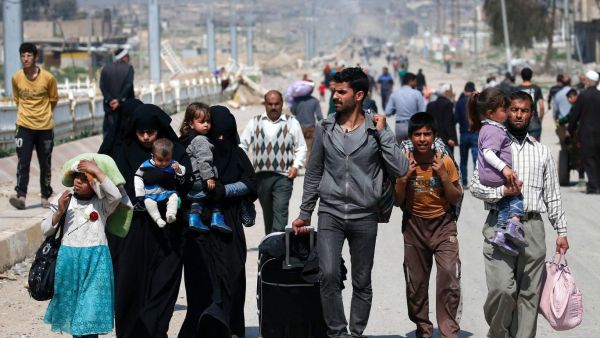- An MSF expert said that those who lived under ISIS in Mosul have gone through more than any other group he has worked with
- The people of Mosul have suffered extreme physical, mental, financial, social, and economic stress
- MSF has set up clinics in Iraq to treat war victims seeking mental health care
- According to MSF statistics, between 1 and 3 percent of any population suffer from severe mental illness
While several Iraqi cities suffered over the past few years of continuous war and conflict, the residents of Mosul—which was recently liberated from the brutal grip of ISIS—carry the deepest scars.
Mosul’s civilian population, who fled the city in waves seeking refuge in other parts of Iraq, had suffered enormously in all capacities: physical, mental, financial, social and economic, according to a mental health expert.
“When it comes to the level of suffering, I think that the people who experienced living under [ISIS] in Mosul have gone through more than any other group of people that I have worked with,” said Gregory Keane, Regional Mental Health Advisor for the Middle East at Médecins Sans Frontières (MSF), also known as Doctors Without Borders.
“Really, the sense of loss, the violence that they faced, the deprivation, (and) the insecurity is tremendous,” Keane said in an interview on the eve of the World Mental Health Day, which is celebrated on Oct.10.
“MSF has worked in mental health contexts for more than 20 years now. It is crucial, that if you want to approach someone’s health that you must include their mental health. Good health includes good mental health. There is no health without good mental health,” said Keane.
The international humanitarian non-governmental organization has established clinics in Iraq to treat people traumatized by war.
- Palestinians’ Mental Health Among World’s Worst due to Chronic Exposure to Trauma
- For Successful Refugee Integration, Mental Health Issues are Key
The organization’s mental health team consisted of six psychiatrists, four medical doctors, seven counselors, five psychologists and several community health workers.
The team was shocked as to just how bad the situation was when they began receiving people.
“People were actually asking for mental health treatment, and honestly, I have not seen it before in public with people saying I am suffering, I need help, or my family is suffering can you please help us, and it was quite a shock for me,” he said.
“I think people lost so much, and finally they have someone to talk to,” he said.
Patients spoke of violence, grief, fear, loss of beloved ones, as well as lack of basic needs.
Visiting various displacement camps between Mosul and Arbil, MSF conducted 17,000 individual consultations between January and September this year.
“People were waiting in line for up to 45 minutes for a chance to speak to a mental health professional,” said, Keane who obtained his Masters in health care policy and management from Harvard’s School of Public Health.
According to MSF statistics, between one and three percent of the population of any given country on average suffer from severe mental illness.
Between five and 15 percent of any population suffers from psycho-social conditions, such as depression, anxiety or Post-Traumatic Stress Disorder.
There are no official statistics yet on mental health cases caused by the recent wars in Iraq, but Keane expects the number to be exponentially larger than the global average.
This article has been adapted from its original source.








